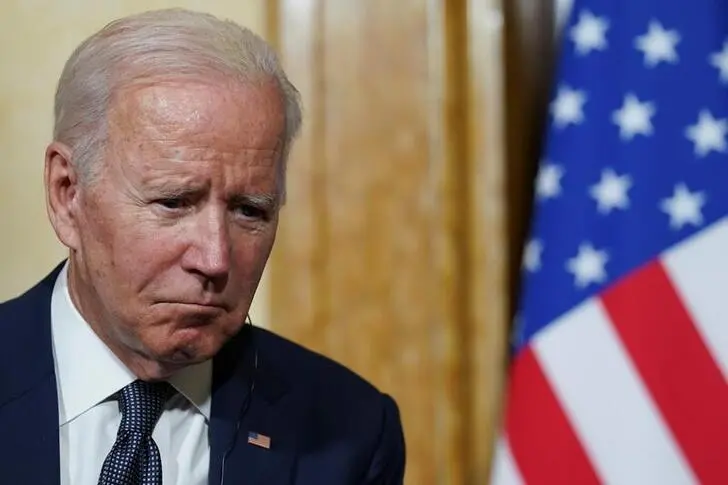PHOTO
(The author is a Reuters Breakingviews columnist. The opinions expressed are her own.)
WASHINGTON - Joe Biden can look in the mirror for answers to supply-chain dilemmas. The U.S. president wants to ease bottlenecks but some of his own policies stand in the way. Competing goals mean there are no quick fixes to rising consumer prices.
A surge in consumer demand along with production and logistical slowdowns due to Covid-19 have crippled the ability to create and move goods around the globe. On Monday, a record 170 vessels, including 114 container ships, were hanging around ports in Los Angeles and Long Beach, according to Marine Exchange of Southern California.
Some simple fixes could help. Chinese manufacturers make equipment that move containers at ports, for example, and are the majority supplier to the United States. But in Biden’s efforts to push for fairer trade with China, his administration has imposed punitive tariffs on such products.
That has caused prices to rise on such goods, which were already scarce. Though Biden and China’s leader Xi Jinping had a friendly meeting on Monday night, smiles are little more than a photo-opportunity. Biden ran his campaign on a platform of being tough on China, and rolling back tariffs without concessions on state subsidies or other practices would make him look weak.
The White House’s push to contain Covid-19 may also be damaging. Companies with at least 100 workers, along with federal contractors, have to ensure employees are fully vaccinated or get regularly tested by January. Yet businesses are already struggling to hire workers. There were 589,000 job openings in the transportation and warehouse sector in September, according to the Labor Department. The vaccine mandate includes broad exceptions for commercial truck drivers but the American Trucking Associations were worried enough to sue the Biden administration over the rule.
Unions, too, are creating a problem. A contract between the International Longshore and Warehouse Union, which covers dock workers, and the Pacific Maritime Association, which represents terminal operators, expires in July. The last such talks about six years ago led to work stoppages and months of disruptions, and labor has even more negotiating power now.
Biden has taken a siloed approach to creating policies that in aggregate have the unfortunate consequence of making supply chain issues worse. Unlike his predecessor Donald Trump, Biden hasn’t cozied up to business leaders. That’s part of the reason why the administration is playing catch up in containing logistical logjams, with American consumers paying the price.
CONTEXT NEWS
- U.S. President Joe Biden on Nov. 15 held a signing ceremony for a bipartisan infrastructure plan to spend about $1 trillion to improve roads and bridges. The president said the legislation would help ease supply-chain problems, improve broadband access and create blue-collar jobs for Americans.
(The author is a Reuters Breakingviews columnist. The opinions expressed are her own.)
(Editing by Lauren Silva Laughlin and Sharon Lam) ((For previous columns by the author, Reuters customers can click on CHON/ SIGN UP FOR BREAKINGVIEWS EMAIL ALERTS https://bit.ly/BVsubscribe | gina.chon@thomsonreuters.com; Reuters Messaging: gina.chon.thomsonreuters.com@reuters.net))





















